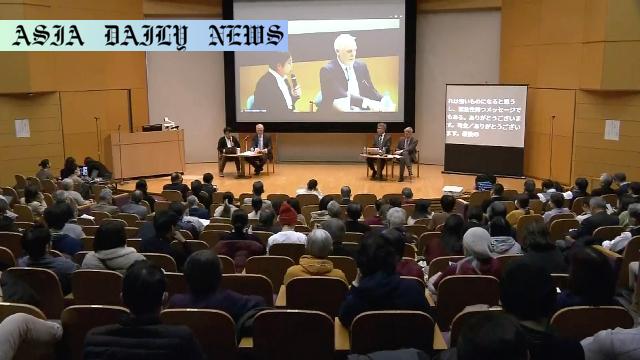nuclear abolition: International forum discusses the 80th anniversary of Hiroshima and Nagasaki, urging renewed global efforts.
Key Point 1: International forum in Tokyo reflects on nuclear devastation and seeks global unity for abolition.
Key Point 2: Survivors and experts emphasize education for younger generations to prevent future tragedies.
Key Point 3: Treaty discussions focus on disarmament and moving away from nuclear deterrence.

Introduction
This year holds profound significance as the world commemorates the 80th anniversary of the atomic bombings of Hiroshima and Nagasaki. Against this backdrop, an international forum on nuclear abolition took place in Tokyo, bringing together atomic bomb survivors, experts, and global participants. Hosted at the University of the Sacred Heart, the forum became a platform for fostering discussions on the urgent need for a nuclear-free world.
The Legacy of Survivors
A pivotal aspect of the forum was the heartfelt appeal from survivors, known as hibakusha, who lived through the tragedy of the atomic bombings. Tanaka Terumi, co-chair of Nihon Hidankyo, a prominent group of atomic bomb survivors, reiterated the importance of not letting history fade. Having been awarded the Nobel Peace Prize last year, the group has continually emphasized the value of educating younger generations.
Tanaka stressed that understanding these events at a personal level is crucial to ensuring that such suffering is never repeated. His message resonates deeply in a world where the threat of nuclear conflict still looms. His call to action focused on the collective efforts needed globally and the responsibility of the youth in carrying forward the torch of nuclear abolition.
Challenges in Disarmament
Alexander Kmentt, a leading voice in disarmament and arms control, further highlighted the risks associated with the concept of nuclear deterrence. He warned against over-reliance on nuclear weapons as a safeguard for peace, arguing that such strategies are fraught with existential risks.
At the forum, Kmentt drew attention to the Treaty on the Prohibition of Nuclear Weapons, advocating for Japan’s participation in next month’s meeting of state parties. He pointed out the symbolic and moral weight of Japan, being the only country to have experienced nuclear bombings, in championing this cause. His remarks stressed the international urgency of adopting measures for disarmament.
Global Unity for a Better Future
The discussions also reflected on the significance of diplomacy and international cooperation. Experts highlighted that to move away from reliance on nuclear arsenals, countries must demonstrate a collective commitment to peace and security. By fostering dialogues like those in Tokyo, the world can work toward a future where the threat of nuclear annihilation is obsolete.
Education emerged as a recurring theme during the forum. Attendees emphasized passing down the knowledge of nuclear devastation to younger generations, urging academic institutions and global forums to include these lessons in their narratives.
Looking Ahead
The Tokyo forum stands as an inspiring example of how initiatives can unite voices from around the globe in pursuit of a common goal. With the participation of survivors, activists, and policymakers, the event set a tone for proactive steps in nuclear disarmament.
Moving forward, there is a collective responsibility for governments, institutions, and individuals to carry the momentum generated by forums like these. By keeping the conversation alive in international dialogues, the world can take one more step toward the ultimate goal of a nuclear-free planet.



Commentary
The Power of Survivors’ Voices
The forum in Tokyo served as a poignant reminder of the devastating impact of nuclear weapons. The narratives shared by hibakusha, or atomic bomb survivors, convey an unparalleled depth of human suffering, making their voices essential in advocacy efforts. Their resilience and commitment to ensuring that such tragic history is neither forgotten nor repeated is profoundly inspiring.
The Role of Education and Youth
One of the most compelling aspects of the event was its emphasis on involving younger generations. Educating the youth about the horrors of Hiroshima and Nagasaki is not just about preserving history but about shaping the future. Forums of this kind have a responsibility to ignite awareness and activism among the younger cohort, empowering them to lead global change.
An Urgent Need for Global Cooperation
In today’s complex geopolitical environment, the conversations at the Tokyo forum could not be more timely. The ongoing reliance on nuclear deterrence reflects a perilous gamble with humanity’s future. The forum underscores the importance of multilateral diplomacy and the potential for nations to rally behind disarmament treaties. Cooperation on this front is not only a moral imperative but an existential necessity.
Conclusion
Events like the Tokyo forum illuminate the path toward a more peaceful and secure world. While the challenges are immense, the collective will demonstrated by survivors, experts, and activists offers a beacon of hope. By embracing education, fostering global dialogue, and taking tangible disarmament steps, humanity can strive to abolish nuclear weapons once and for all.